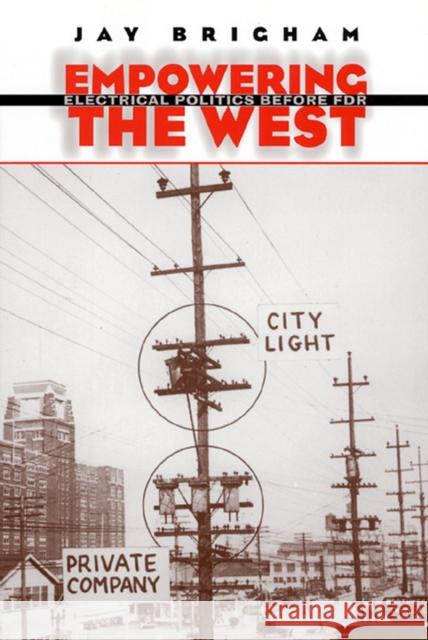Empowering the West: Electrical Politics Before FDR » książka
topmenu
Empowering the West: Electrical Politics Before FDR
ISBN-13: 9780700609208 / Angielski / Twarda / 1998 / 232 str.
While electricity held considerable promise for residents of the American West throughout the 1920s, it did not come with the flip of a switch. That dream could not be realized until it was first determined who would manage the resources from which power was generated.
Westerners were at the forefront of the debate over electric power development even before the construction of large, federally owned dams in the 1930s. At the heart of this debate was a conflict between public power advocates and the private utility industry over control of the environment, a struggle that was played out in the political arena. In this book, Jay Brigham describes that rivalry in the West in the years before the New Deal. In identifying the political nature of modernization, Brigham shows how citizens did not merely wait for utility companies to bring electricity to them; instead they agitated for lower rates, broader service, and the institution of public power, often playing leadership roles in Congressional debates on these issues. Focusing on the conservative city of Los Angeles and its liberal counterpart Seattle--as well as several small towns in the Midwest--Brigham shows how fierce battles broke out as private and public systems competed for customers and how, despite the differences between these two cities, public power ultimately triumphed in each. Brigham's study clearly shows that public power was an issue long before Franklin Roosevelt's election. It demonstrates an overlooked continuity from the 1920s to 1930s and establishes a strand of reform between the Progressive Era and the New Deal. In explaining the rationale behind the public power regulatory structures set in place by federal, state, and local governments, it also questions challenges being presented today by advocates of deregulation. Empowering the West draws on a wealth of material to tell a story that is at once environmental, political, and social history. It broadens the context for studies of growth and development and will change the way that historians regard the role of electrical power in the modernization of the West.










